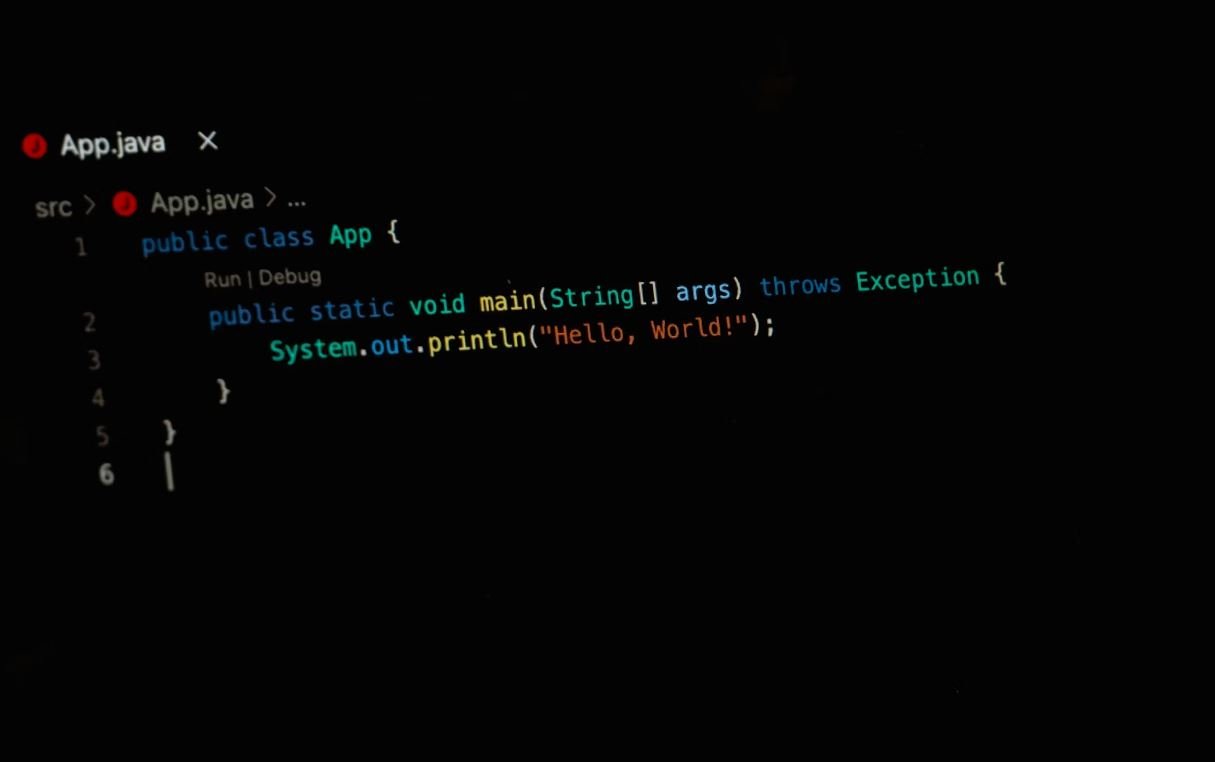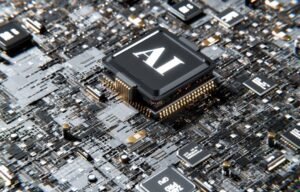AI Project Template
Artificial Intelligence (AI) projects require careful planning and execution. Having a structured template can help streamline the development process. This article presents an informative AI project template to guide you in successfully completing your next AI endeavor.
Key Takeaways
- AI project templates provide a structured approach to AI project development.
- Using a template helps in defining clear project goals and requirements.
- Proper project planning ensures efficient resource allocation and timelines.
- Developing and training AI models require comprehensive data collection and preprocessing.
- Iterative testing and validation help refine and improve AI models.
- Documentation and knowledge transfer are essential for future maintenance and scalability.
Define Project Goals and Requirements
Before starting an AI project, it’s crucial to clarify the project goals and define the requirements. Understanding what you aim to achieve will guide the entire development process. *Identifying the specific needs and challenges* you want to address will help focus your efforts and ensure alignment with desired outcomes.
Project Planning and Resource Allocation
Creating a project plan with clear timelines, milestones, and resource allocation is essential. This step allows you to identify potential challenges, dependencies, and constraints that may arise during the project. *Proper planning helps ensure efficient resource allocation* and avoids delays or setbacks that could hinder progress.
Data Collection and Preprocessing
| Data Collection | Data Preprocessing |
|---|---|
| Collect diverse and representative data. | Clean and normalize data. |
| Consider ethical implications. | Handle missing or inconsistent values. |
| Ensure sufficient quantity for training. | Apply feature scaling or encoding. |
Without high-quality data, AI models may not perform optimally. Data collection involves gathering diverse and representative data relevant to your AI project, while *data preprocessing ensures data is clean, normalized*, and ready for training. It is important to *consider ethical implications*, handle missing or inconsistent values, and apply appropriate feature scaling or encoding techniques.
AI Model Development and Training
The development and training of AI models is a critical phase in an AI project. Using the collected and preprocessed data, you can build and optimize AI models to achieve desired outcomes. *During this stage, iterative testing and validation* help refine the models, boosting their accuracy, efficiency, or other desired performance metrics.
Model Testing and Validation
Thoroughly testing and validating AI models ensures their reliability and performance. It involves evaluating model accuracy, precision, recall, and other relevant metrics using various test datasets. *Iterative testing and validation processes* help identify and rectify any errors or weaknesses in the models, leading to improved overall performance.
Documentation and Knowledge Transfer
| Documentation | Knowledge Transfer |
|---|---|
| Document project outcomes and insights for future reference. | Ensure knowledge transfer among team members. |
| Note down model configurations and parameters. | Train colleagues and stakeholders on using developed AI models. |
| Provide comprehensive user guides or documentation. | Document potential troubleshooting techniques. |
Documentation and knowledge transfer are crucial for future maintenance and scalability. Documenting the project outcomes and insights allows future reference and builds institutional knowledge. *Knowledge transfer among team members* ensures smooth operations and maximizes the use of the developed AI models. Comprehensive user guides, model configurations, troubleshooting techniques, and training for colleagues and stakeholders play a vital role in long-term success.
Continued Monitoring and Improvement
AI projects don’t end with model deployment. *Continued monitoring and improvement* is necessary to ensure the AI models stay relevant and effective. Monitoring their performance, gathering feedback, and implementing updates or modifications as needed helps maintain optimal performance and adaptability.
Implementing an AI project template provides a structured approach to successfully develop and deploy AI solutions. By following a clear plan and considering different aspects, you can increase the chances of achieving desired outcomes. Start using AI project templates today and unlock the potential of artificial intelligence in your projects!

Common Misconceptions
Misconception 1: AI Project Template Title will solve all problems
- AI project templates are not a one-size-fits-all solution for all problems.
- These templates provide a starting point, but customization is often necessary.
- Template title is just a placeholder and needs to be tailored to the specific project needs.
Misconception 2: AI project templates don’t require programming knowledge
- While AI project templates can provide a foundation, programming knowledge is still essential.
- Templates often require customization or integration with existing codebases, which requires programming skills.
- Understanding the underlying algorithms and techniques used in AI projects is also crucial for successful implementation.
Misconception 3: AI project templates are only for experts
- AI project templates are designed to simplify the development process and make it more accessible.
- They can be used by both beginners and experts in the field of AI.
- Templates often come with documentation and tutorials to guide users through the implementation process.
Misconception 4: AI project templates guarantee immediate results
- AI projects, regardless of using a template or not, require time and effort to achieve meaningful results.
- Templates provide a starting point but may still require experimentation, tweaking, and training.
- Real-world datasets and complex problems often demand iterations and refinement of the AI models.
Misconception 5: AI project templates undermine creativity and originality
- AI project templates serve as a foundation, but there’s still room for creativity and originality.
- Templates can be customized, modified, and extended to suit unique project requirements and goals.
- They serve as a starting point, enabling developers to focus on problem-specific challenges and innovative solutions.

AI Development Companies
Here is a list of some popular Artificial Intelligence development companies and their respective headquarters
| Company Name | Headquarters |
|---|---|
| OpenAI | San Francisco, United States |
| DeepMind | London, United Kingdom |
| IBM Watson | Armonk, United States |
| Microsoft Azure AI | Redmond, United States |
AI Applications in Healthcare
Artificial Intelligence has revolutionized the healthcare industry. Here are some applications of AI in healthcare:
| Application | Description |
|---|---|
| Medical Imaging Analysis | AI algorithms can analyze medical images to aid in the detection of diseases such as cancer. |
| Virtual Nursing Assistants | AI-powered virtual assistants can provide personalized care recommendations to patients. |
| Robot-Assisted Surgery | AI robots assist surgeons during complex procedures, enhancing precision and reducing risks. |
Top AI Programming Languages
Various programming languages are commonly used in AI development. Here are some of the most popular ones:
| Language | Advantages |
|---|---|
| Python | Easy syntax, vast libraries, and strong community support. |
| R | Great for statistical analysis and data visualization. |
| Java | High performance, scalability, and object-oriented programming. |
AI in Popular Movies
Artificial Intelligence has been a prevalent theme in movies. Here are some notable films featuring AI:
| Movie | Year | Plot |
|---|---|---|
| The Matrix | 1999 | An AI system creates a simulated reality to control humans. |
| Ex Machina | 2014 | A programmer interacts with an advanced humanoid AI. |
| Her | 2013 | A man falls in love with an intelligent operating system. |
AI in Video Games
AI plays a crucial role in enhancing the gaming experience. Here are some examples of AI in video games:
| Game | AI Application |
|---|---|
| FIFA | AI controls player movements, pass accuracy, and game strategies. |
| Assassin’s Creed | AI determines NPC behaviors, crowd dynamics, and combat interactions. |
| Portal | AI character GLaDOS controls the game environment and guides the player. |
Timeline of AI Milestones
Artificial Intelligence has come a long way since its inception. Here are some significant milestones:
| Year | Milestone |
|---|---|
| 1956 | The term “Artificial Intelligence” is coined at the Dartmouth conference. |
| 1997 | IBM’s Deep Blue defeats chess grandmaster Garry Kasparov. |
| 2011 | IBM’s Watson wins against human competitors on Jeopardy. |
AI Impact on Employment
Artificial Intelligence has brought about changes in the job market. Here is the impact of AI on employment:
| Impact | Description |
|---|---|
| Automation | AI-powered robots and systems automate certain tasks, leading to job displacement in some sectors. |
| Creation of New Jobs | AI advancements create new job opportunities in areas such as data analysis and AI research. |
| Job Transformation | AI tools augment human capabilities, transforming job roles and requiring new skills. |
AI Ethics and Regulations
The ethical implications of AI have prompted the need for regulations. Here are some key considerations:
| Consideration | Description |
|---|---|
| Privacy | Data protection and user privacy concerns regarding AI systems’ data collection and analysis. |
| Transparency | The need for clear explanations of AI decision-making processes to ensure accountability. |
| Equity | Ensuring fairness and avoiding bias in AI algorithms, particularly in decision-making systems such as hiring. |
The Future of AI
Artificial Intelligence continues to evolve and shape various industries. The future of AI holds immense possibilities:
| Possibility | Description |
|---|---|
| AI in Transportation | Self-driving cars and AI-powered traffic management systems will reshape transportation as we know it. |
| AI in Education | Personalized learning experiences and AI tutors have the potential to revolutionize education. |
| AI in Climate Change | AI can help analyze vast amounts of data to develop sustainable solutions for addressing climate change. |
Artificial Intelligence continues to make strides, from its application in healthcare to its influence on employment. As AI progresses, it becomes increasingly important to address ethical considerations and implement regulations to ensure fairness, transparency, and privacy. The future of AI holds great potential, with possibilities in transportation, education, and tackling climate change. Embracing AI advancements and leveraging its capabilities will undoubtedly shape the future of various industries.
Frequently Asked Questions
Questions about AI Project Templates
- What is an AI project template?
- An AI project template provides a framework or a starting point with predefined components and features that can be used as a foundation for building AI-powered applications. It helps developers save time by offering pre-built functions and implementation patterns.
- How can an AI project template be useful?
- An AI project template can be useful in various ways. It can accelerate the development process, ensure best practices are followed, provide standardized workflows, offer code samples, and simplify the integration of AI algorithms or models into a project.
- What components should an AI project template include?
- An AI project template should ideally include components such as data preprocessing modules, model training pipelines, model evaluation modules, and deployment scripts or guidelines. It may also include utility functions, visualization tools, and third-party library integrations depending on the specific requirements.
- Are AI project templates specific to a particular programming language or framework?
- AI project templates can be designed for specific programming languages or frameworks like Python, TensorFlow, PyTorch, or scikit-learn. However, there are also language-agnostic templates that provide a general structure and can be adapted for various programming languages or frameworks.
- Can AI project templates work with different types of AI applications?
- Yes, AI project templates can be used to develop various types of AI applications. Whether it’s image classification, natural language processing, recommendation systems, or any other AI domain, the templates can serve as a foundation for building the specific application logic and workflows.
Customizing and Using AI Project Templates
- How customizable are AI project templates?
- AI project templates are designed to be customizable. Developers can modify and extend the template components to fit their specific needs. They can add or remove modules, incorporate different algorithms, fine-tune parameters, and adapt the template to match the requirements of their AI project.
- Are there any open-source AI project templates available?
- Yes, there are several open-source AI project templates available. These templates are often shared by developers and organizations on platforms like GitHub, allowing others to leverage their work and contribute to the community. Open-source templates can be a great starting point for AI projects.
- How can I find and use an AI project template?
- To find an AI project template, you can search online platforms like GitHub, AI-related forums, or developer communities. Once you find a suitable template, you can download or clone the repository and follow the provided instructions to set up and customize the template according to your project requirements.
- What are the prerequisites for using an AI project template?
- The prerequisites for using an AI project template may vary depending on the specific template and its dependencies. Generally, you will need basic programming knowledge, an understanding of AI concepts, familiarity with the chosen programming language or framework, and the necessary hardware and software requirements mentioned in the template’s documentation.
- Can I contribute to an AI project template?
- In most cases, you can contribute to an open-source AI project template by interacting with the template’s repository on platforms like GitHub. You can raise issues, suggest enhancements, provide code contributions, or even create your own fork of the template with your additions. However, it’s advisable to follow the contribution guidelines provided by the template’s authors.




